Human Growth Hormone (HGH) Review
There is a lot of mystery surrounding Human Growth Hormones, also known commonly as HGH. It was first popularized in America in the 1950s, it was only available to those that were excessively wealthy and children that were severely deficient.
It was rare, because there is only a small amount that is produced in the body at a time. However, when a synthetic was figured out, it was more popular and has now been used in a number of conditions.
The Food and Drug Administration (FDA) allows for HGH to be used as an ingredient in treatments for certain purposes, however it is only approved for a small number of ailments including:
- HGH deficiency that cause growth inhibition in children, resulting in short stature
- Long term treatment for either lack of exogenous growth hormone secretion or when associated with Turner’s Syndrome
- Adult Short Bowel Syndrome
- Adult HGH deficiency due to rare pituitary tumors (and their treatment)
- Muscle-Wasting Disease (in conjunction with HIV/Aids)
Today, for treatments not approved by the FDA ,HGH is marketed most often as a supplement. It is used in creams for anti-aging, by bodybuilders for increased muscle and for a number of other purposes.
Always use caution and consult your primary care provider before starting any HGH therapy.
 What Is Human Growth Hormone (HGH)?
What Is Human Growth Hormone (HGH)?
HGH, is produced by our pituitary gland, a pea sized gland located just below the brain.
While we produce a lot of it naturally during puberty, our bodies produce less and less as we age.
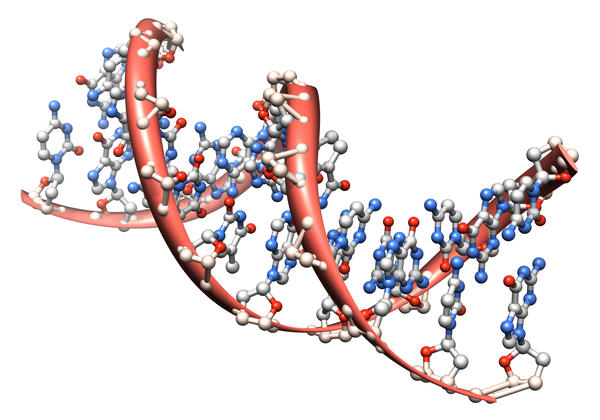 The gland also releases other hormones such as:
The gland also releases other hormones such as:
- Anti-diuretic hormone, which controls water loss in the kidneys.
- Oxytocin, which stimulates the uterus to contract during labor, and breasts in releasing milk.
- Thyroid stimulating hormone, which stimulates the thyroid gland to release hormones that affect metabolism.
Also known as somatotropin and HGH in humans, if the anterior pituitary gland becomes deficient in its production of the body’s growth hormones, for any reason, this can lead to many debilitating conditions, depending on the age of onset. This is because HGH is a vital peptide hormone responsible for stimulating growth in the human body, as well as cell reproduction and regeneration.
Back in the 1950s, the only way to get HGH was from a dead body because of how it is produced. Considering that there is only so much produced, its use was highly regulated.
Today, there is synthetic HGH available as well, but only available in the United states if it is prescribed by a medical doctor. It also is the active ingredient of some prescription drugs, as well as used in some dietary fitness supplements found in vitamin stores.
This hormone spurs our growth during childhood, as well as regulate our body development in other areas such as: Regulating body composition, bone development, fat metabolism, sexual function in males and females, and maintaining tissue and organ health our whole lives.
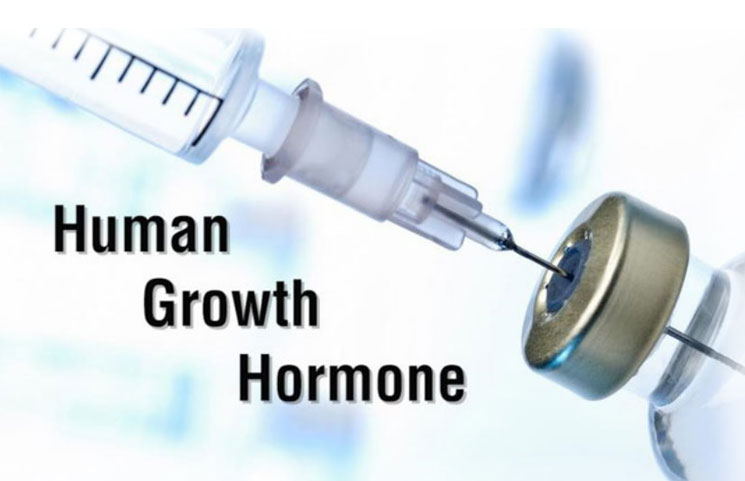 Who Can Benefit From HGH?
Who Can Benefit From HGH?
Human Growth Hormone therapies have been applied for conditions for both children and adults. Since rigorous study and approval for clinical trials in the 1980s in America, HGH research has been quite comprehensive.
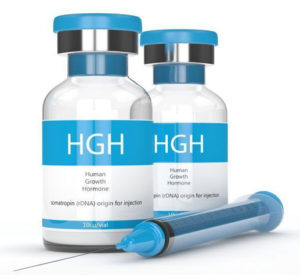 In developing children the results can affect many aspects of physical growth, mental maturation, delaying puberty, and in some cases leads to sparse and or brittle hair growth, or frontal recession, and a variation of other physical maladies.
In developing children the results can affect many aspects of physical growth, mental maturation, delaying puberty, and in some cases leads to sparse and or brittle hair growth, or frontal recession, and a variation of other physical maladies.
Our bodies produce HGH in reaction to things like; exercise, heavy sleep, protein ingestion, and hypoglycemia. Irregular levels of the human growth hormone can cause dwarfism or gigantism in children, and acromegaly in adults.
Even in adults the production of HGH is essential for maintaining a healthy bone and muscle mass/strength index, in addition to affecting the bodily systems responsible for energy, concentration, and memory retention.
Growth hormone deficiencies also occur by themselves, or in conjunction/as the result of other hormone deficiencies. For these reasons it should be treated by a physician as soon as you become aware of the condition.
 HGH and Adults
HGH and Adults
Human Growth Hormone Deficiency in Adults
Human growth hormones (HGH) affect many systems in the body throughout a person’s life, though the mechanisms causing physical growth like height, have ceased by adulthood. Late onset of a growth hormone deficiency (GHD) in adults isn’t common, but is most frequently caused by parasellar and pituitary tumors.
 Potential Causes of Adult GHD
Potential Causes of Adult GHD
- Gene mutations
- Diseases that are congenital, like Turner syndrome
- Congenital pituitary abnormalities
- Chronic kidney disease
- Intracranial tumors
- A damaged pituitary resulting from surgery, radiation treatment, hydrocephalus, or trauma to the head.
- Hypophysitis (autoimmune inflammation)
- Having been born abnormally small for your gestational age
- Impaired blood supply or bleeding of the pituitary gland (hemorrhage pituitary apoplexy)
- Complications from low blood pressure (Sheehan syndrome)
Physical Symptoms of Adult GHD
- Baldness or thinning of the hair
- Lack of energy
- Decreased muscle mass
- Elevated levels of body fat, mostly in the waist area
- Decreased bone mass/strength and osteoporosis
- Elevated levels of the enzymes involved in metabolizing steroids (5-alpha reductase)
- A reduction in the glycoproteins which bind to the sex hormones androgen and estrogen
- An increase in the glycoproteins involved with forming blood clots
- Increases in the activator inhibitor plasminogen
- Increased low-density lipoprotein cholesterol
- Irregular lipid molecules
- Cardiac issues
- Reduction of visual acuity or loss of hand-eye coordination
Cognitive Symptoms of Adult GHD
- Trouble focusing
- Poor memory retention
- Social withdrawal
- Depressive states of varying severity
The cases of adult GHD are infrequent, however its effect on sustaining healthy muscle/bone mass and strength is well studied and understood. Its effect on cognition and mood regulation is still being studied, but as of yet is far less well known. GHD is a serious condition with lifelong ramifications. If you believe you may be suffering from GHD, consult with your physician immediately and discuss the possibility of HGH therapies.
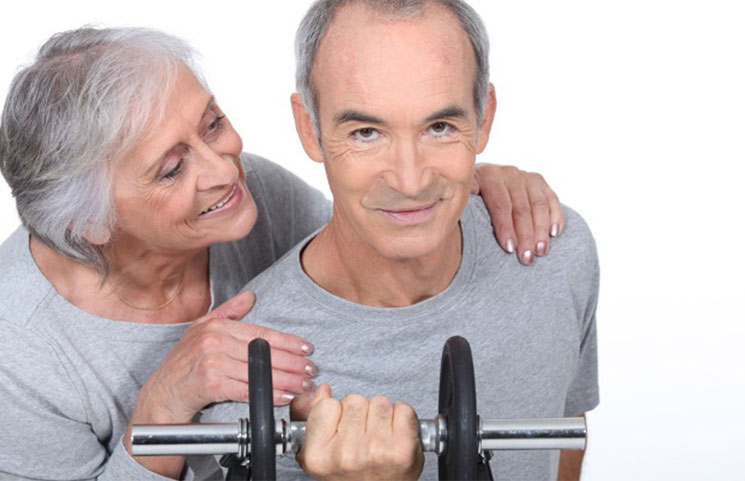 HGH and Children
HGH and Children
Human Growth Hormone Deficiency in Children
The consequences of a growth hormone deficiency in a child can be greatly varied and severe, and quite severe. GHD in children can occur prenatally, congenitally, or post birth as the result of outside factors, such as radiation treatment or head trauma.
 These deficiencies, in utero, don’t greatly affect the growth of the fetus, however they can lead to physical deformations, including frontal recession and micropenis in males, and after birth can cause hypoglycemia and extreme jaundice.
These deficiencies, in utero, don’t greatly affect the growth of the fetus, however they can lead to physical deformations, including frontal recession and micropenis in males, and after birth can cause hypoglycemia and extreme jaundice.
GHD doesn’t generally impair natural growth until the child is a few months old, however once it begins up until the mid-teenage years, its most common feature is stunted growth and stature. In addition to poor growth, it impedes physical maturation. This means they develop physically much slower than other children, causing motor skill achievements, such as standing and walking, as well as puberty to be delayed. Severe untreated cases can see growth halted completely at no higher than 4ft.
Another side effect of GDH in children can be how it affects the amounts of muscle, bone, and fat, as well as hair growth. This can lead to an appearance of being mildly overweight, sparse hair growth, and or frontal recession.
 What Else Can HGH Be Used For?
What Else Can HGH Be Used For?
There are a number of areas that HGH can be beneficial. Keep in mind, most of these treatment purposes are not approved by the FDA. Additionally, there are risks to using HGH and you should always weigh out the risks against the desired outcome.
Anti-Aging
HGH is also used in anti-aging clinics, sprays and creams too. Although, the Synthetic HGH used in these “over the counter” versions have shown no reliable evidence to have the same effects as the prescription human growth hormone, which is always administered as a shot or taken orally.
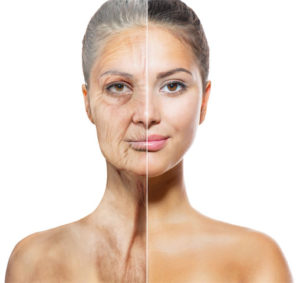 As a person grows older, their hormone levels start to decline. Research has shown that around the age of 30 hormone levels start to reduce by 14% per decade on average, meaning that a person of 80 may have as little as 30% of the bodies natural hormones.
As a person grows older, their hormone levels start to decline. Research has shown that around the age of 30 hormone levels start to reduce by 14% per decade on average, meaning that a person of 80 may have as little as 30% of the bodies natural hormones.
Studies have demonstrated that a deficiency in these hormones can cause a number of harmful effects including reduced bone mass, increased fat gain, and lack of energy. Because of this almost a million americans are now turning to HGH treatments and supplements for it’s anti-aging benefits.
Recent studies have shown that seniors using HGH supplements for six months showed an average of 10% decrease in fat, a 10% increase in lean muscle and a 2% increase in bone density. Additionally participants in the study reported that they experienced a multitude of other beneficial effects including; Higher energy levels, increased tolerance for strenuous physical activity, increased sense of well being, improved sexual capacity and function, improved cognitive function, increased hair growth, and the disappearance of wrinkles and age spots.
 Athletic Training
Athletic Training
Years of research shows us that Human growth hormone in is intrinsic to athletic training and the development of muscle mass. One of the primary functions of HGH is the increase to the human body's tolerance for strenuous activities. The reason for this increased tolerance is due to HGHs strong anabolic effect, which causes the body to synthesise protein more efficiently, increasing muscle mass. While conventional steroids can also increase the number of muscle cells, HGH not only increases the number of muscle cells but also increases the size of the cells as well. Additionally unlike steroids, after a person is taken off HGH therapy the increased muscle mass persists.
 Another advantage Human Growth Hormones have over traditional steroids, is that while steroid treatments can leave lasting damage to connective tissues and ligaments, HGH therapy strengthens the connective tissues like the cartilage, tendons and ligaments. Because of this effect sports related injuries heal more rapidly, and are less likely to be reinjured. Because of this the hormone has been used by dozens of professional athletes.
Another advantage Human Growth Hormones have over traditional steroids, is that while steroid treatments can leave lasting damage to connective tissues and ligaments, HGH therapy strengthens the connective tissues like the cartilage, tendons and ligaments. Because of this effect sports related injuries heal more rapidly, and are less likely to be reinjured. Because of this the hormone has been used by dozens of professional athletes.
The normal human body is constantly trying to find a balance between fat and muscle, which is why when you lose weight some of it is fat, and some is muscle. That is why HGH has an additional benefit to athletes and people in training, which is the hormones strong catabolic effect. Catabolic which means to spare proteins, meaning that when you exercise and lose weight your body will break down fatty tissue while leaving muscle tissue whole. Because of this it allows for athletes to quickly recover from injury while staying in peak physical condition.
 Blood Pressure and Cholesterol
Blood Pressure and Cholesterol
There are two types of cholesterol, and they are one of the controlling factors in cardiovascular health. The two types are High Density Lipoprotein (HDL) or “good” cholesterol, and Low Density Lipoprotein (LDL) or “bad” cholesterol. The balance between the two of these is one of the determining factors of heart health. Doctors recommend that the ratio of LDL and HDL should be less than 2.5, to ensure health functioning of the heart. Without this balance one is at a significantly greater risk for many cardiovascular disorders such as cardiac disease, heart attack and atherosclerosis.
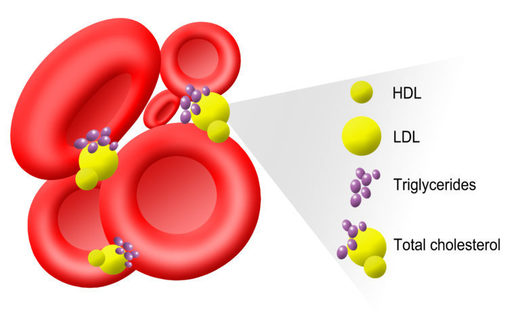 Because of this, the benefits of HGH are twofold for cholesterol. One of them being that HGH causes the body to increase levels of HDL in the bloodstream, which positively influences cardiovascular health. The second being that HGH can reduce the presence of LDL in the body, which is associated with a multitude of negative health effects including stroke.
Because of this, the benefits of HGH are twofold for cholesterol. One of them being that HGH causes the body to increase levels of HDL in the bloodstream, which positively influences cardiovascular health. The second being that HGH can reduce the presence of LDL in the body, which is associated with a multitude of negative health effects including stroke.
This rebalancing of cholesterol levels also comes with it a reduction of blood pressure and increased cardiovascular health. Additionally because HGH increases the body’s production of B-endorphin, it experiences stress less adversely which also positively affects heart health.
 Bodybuilding
Bodybuilding
One of the most popular uses of Human Growth Hormone is for the development of new muscle mass. Unlike normal muscle gaining supplements, or even steroids, HGH causes your body to produce new muscle cells, something its stops doing after puberty. Without HGH in your system, your body can only increase the size of existing muscle cells, not create new ones.
Additionally because HGH increases your metabolic rate, you burn more fat for energy, so the only weight gained while on HGH is from muscle.
Another benefit for bodybuilders from using HGH is reduced recovery time from workouts. This is due to HGH causing you body to more quickly convey amino acids, which in turn increases protein production. This increase of proteins can contribute to a host of physical benefits for bodybuilders from increased lean muscle to reduced vulnerability to sports injury.
 Hair Loss
Hair Loss
The medical term for male pattern baldness is Androgenetic Alopecia and it symptoms include baldness or receding hairline, thinning of the hair, and premature greying. These signs can start affecting men as early as their teen years, and It’s estimated that about 92% of all men will suffer from it. While there are several factors that can contribute to hair loss including environment, diet, and age, one of the most important factors is genetics which is thought to be the cause of 80% of all hair loss in men.
One of the reasons for hair loss is attributed to elevated levels of dihydrotestosterone (DHT), which occurs naturally in your body as it converts testosterone into DHT. Because your body naturally converts more testosterone into DHT as you get older, you eventually lose more hair then you grow.
The benefit to HGH users looking to retard hair loss is twofold. One is that it reduces production of the DHT enzyme and slows the rate of hair death. Secondly is that use of HGH has been shown to promote new hair growth in men as well.
 Height
Height
While the height in humans is determined by a complex series of variables including diet, lifestyle and personal genetics, there are certain key factors that have greater control in the final result. One of the primary factors is Human Growth Hormone, which has a direct effect on our hight. Even though HGH is produced in the pituitary gland, it helps the body increase growth through the liver.
Our livers do this by using HGH to secrete a factor called IGF-1, which stands for Insulin like Growth Factor – 1. IGF-1 promotes the increased growth of tissue located at the end of long bones, called the epiphyseal plate or growth plate. A off balance of HGH can cause two different conditions related to height, Dwarfism (i.e. little person) which is caused by a lack of HGH, or Gigantism, which is caused by an excess of the hormone.
 Mood and Memory
Mood and Memory
Although Human Growth Hormone has a multitude of physical beneficial effects, few people know it also has many effects on the mind as well. Because of its rejuvenating effect on cells throughout the body, it improves both your memory and your mind.
 One of these benefits is HGH’s ability to revitalize the mind. Studies have shown that HGH deficiency can cause severe impairment of both short-term and long-term memory as well as reduced hand-eye coordination. HGH therapy and supplements and reverse these effects by helping the mind revive and regrow damaged neurons (Nerve cells).
One of these benefits is HGH’s ability to revitalize the mind. Studies have shown that HGH deficiency can cause severe impairment of both short-term and long-term memory as well as reduced hand-eye coordination. HGH therapy and supplements and reverse these effects by helping the mind revive and regrow damaged neurons (Nerve cells).
Another benefit to the mind is HGH’s ability to elevate the mood and acts as a natural antidepressant. The hormone does this by raising the body’s production of B-endorphins (one of the “feel good” hormones) as well as lowering the production of dopamine (which causes agitation). This rebalancing of hormones comes with it feelings of well being and serenity, as well as improve focus and concentration.
 Weight Loss
Weight Loss
Human Growth Hormone can play a significant role in weight loss due to its effects on the body. As HGH is produced it causes several changes in the human body, one of which is the production of IGF-1 (Insulin like Growth Factor – 1). IGF-1 is responsible for many things throughout the body, one of which is the regulation and limiting of glucose use.
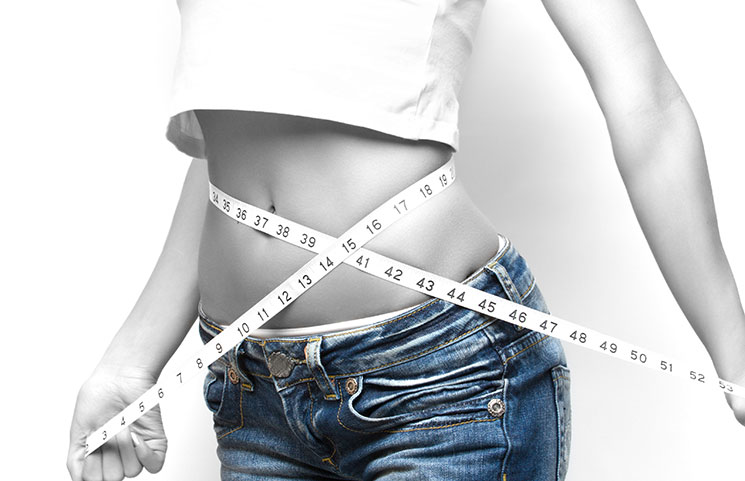 Normally after you eat, your body produces insulin which turns carbohydrates into glucose, which is stored in your fat cells until it is used for energy. Your body will try and use all of the glucose for energy first, before using the body’s fat reserves. But, when on HGH treatments the natural IGF-1 produced by it causes the body to prevent glucose from gathering in fat cells, which forces the body to instead rely on it’s fat reserves for energy.
Normally after you eat, your body produces insulin which turns carbohydrates into glucose, which is stored in your fat cells until it is used for energy. Your body will try and use all of the glucose for energy first, before using the body’s fat reserves. But, when on HGH treatments the natural IGF-1 produced by it causes the body to prevent glucose from gathering in fat cells, which forces the body to instead rely on it’s fat reserves for energy.
This can be a huge benefit to weight loss because all times of day your body needs energy, so when it’s relying on fat for energy all day, it’s burning fat all day, even when you sleep.
Another benefit HGH has toward weight loss is its ability to stimulate triglyceride breakdown in adipose cells (i.e. Fat Cells), which causes a tremense burning of fat without the loss of muscle.
 Side Effects of HGH
Side Effects of HGH
The side effects seem to outweigh the benefits of the human growth hormones uses, and may be associated with other diseases such as diabetes and heart Disease. Always consult your doctor before using HGH supplements.
The side effects may include:
- Enlargement of breast tissue in men
- Carpal tunnel syndrome
- Joint and muscle pain
- Swelling in your arms or legs
As you can see that while HGH isn’t a “miracle pill”, and it still needs a lot of testing for FDA approval, it definitely shows promise when used to treat a host of ailments. From applications of physical fitness to anti-aging and mental clarity, HGH is showing it may be the new medication of tomorrow, today!










Can whole health hgh oral spray counteract with funasteride or dutasreide causing gair loss un men? I have noticed an alarming rate of hair loss ..I was under alot of stess a few months back thinking that was the problem. Now I am concerned is this counreacting with these meds. I never had hair loss in shower like I have the past few months. I do not understand it because finasteride and or dutasteride should protect from hair loss.